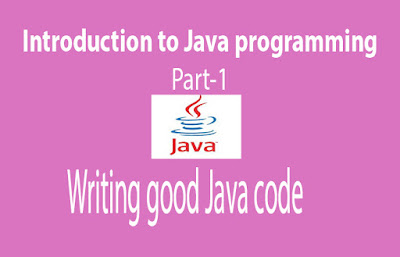C# is an exquisite and sort safe question situated dialect that empowers designers to manufacture an assortment of secure and vigorous applications that keep running on the .NET Framework. You can utilize C# to make Windows customer applications, XML Web administrations, dispersed parts, customer server applications, database applications, and a whole lot more. Visual C# gives a propelled code supervisor, advantageous UI architects, incorporated debugger, and numerous different apparatuses to make it less demanding to create applications in light of the C# dialect and the .NET Framework.
Note: The Visual C# documentation expect that you have a comprehension of fundamental programming ideas. On the off chance that you are an entire novice, you might need to investigate Visual C# Express, which is accessible on the Web. You can likewise exploit books and Web assets about C# to learn down to earth programming aptitudes.
C# Languages
C# language structure is exceptionally expressive, yet it is likewise straightforward and simple to learn. The wavy support language structure of C# will be in a split second unmistakable to anybody comfortable with C, C++ or Java. Engineers who know any of these dialects are ordinarily ready to start to work beneficially in C# inside a brief span. C# linguistic structure rearranges large portions of the complexities of C++ and gives effective elements, for example, nullable esteem sorts, identifications, delegates, lambda expressions and direct memory get to, which are not found in Java. C# bolsters bland techniques and sorts, which give expanded sort security and execution, and iterators, which empower implementers of accumulation classes to characterize custom cycle practices that are easy to use by customer code. Dialect Integrated Query (LINQ) expressions make the specifically question a top of the line dialect develop.
As a question situated dialect, C# bolsters the ideas of epitome, legacy, and polymorphism. All factors and strategies, including the Main strategy, the application's entrance point, are epitomized inside class definitions. A class may acquire specifically from one parent class, yet it might execute any number of interfaces. Strategies that abrogate virtual techniques in a parent class require the supersede catchphrase as an approach to keep away from incidental redefinition. In C#, a struct resembles a lightweight class; it is a stack-allotted sort that can execute interfaces yet does not bolster legacy.
Notwithstanding these fundamental protest situated standards, C# makes it simple to create programming parts through a few inventive dialect develops, including the accompanying:
- Typified technique marks called delegates, which empower sort safe occasion notices.
- Properties, which fill in as accessorize for private part factors.
- Properties, which give decisive metadata about sorts at run time.
- Inline XML documentation remarks.
- Dialect Integrated Query (LINQ) which gives worked in question abilities over an assortment of information sources.
On the off chance that you need to communicate with different Windows programming, for example, COM articles or local Win32 DLLs, you can do this in C# through a procedure called "Interop." Interop empowers C# projects to do practically anything that a local C++ application can do. C# even backings pointers and the idea of "hazardous" code for those cases in which coordinate memory get to is totally basic.
The C# assemble process is basic contrasted with C and C++ and more adaptable than in Java. There are no different header documents, and no necessity that strategies and sorts be pronounced in a specific request. A C# source document may characterize any number of classes, structs, interfaces, and occasions.












0 coment�rios:
Post a Comment